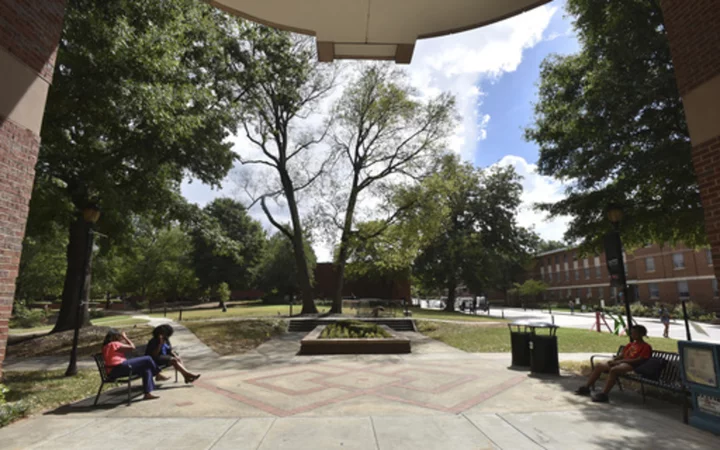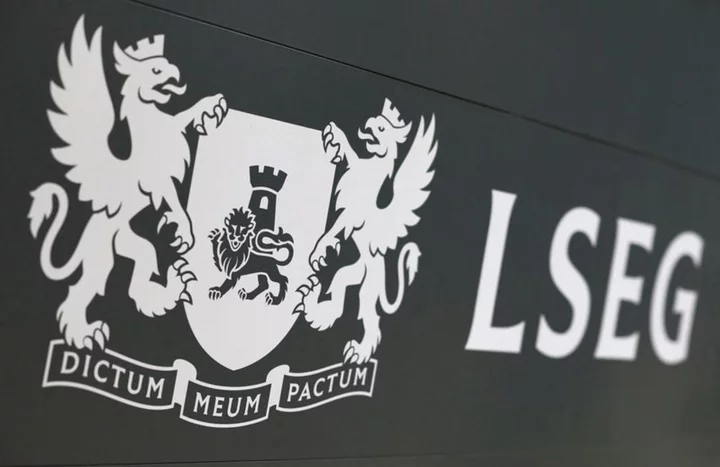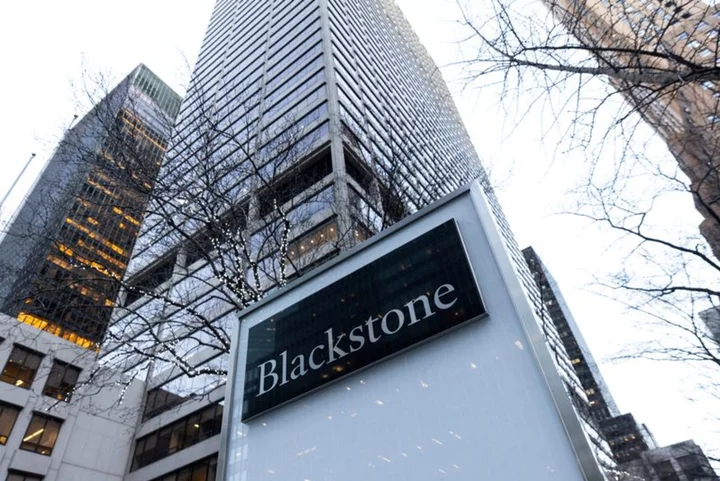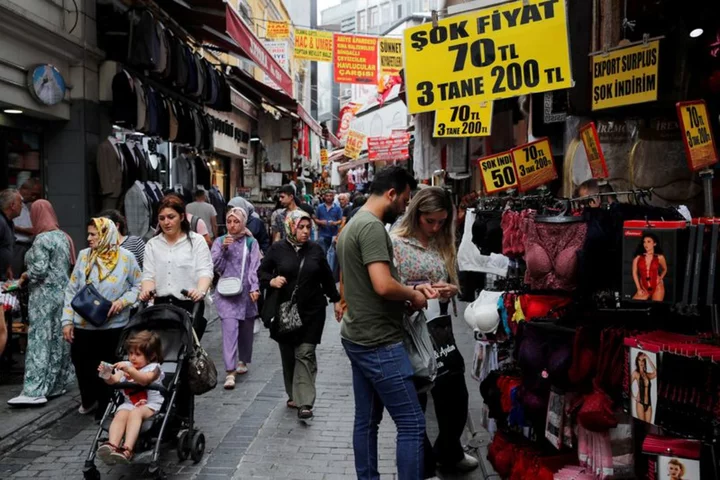NEW YORK (AP) — The HBCU Transformation Project, a coalition of 40 historically Black colleges and universities, on Wednesday announced a $124 million gift from philanthropic funders Blue Meridian Partners to increase enrollment, graduation rates and employment rates for the schools' graduates.
Michael Lomax, president and CEO of UNCF, which is acting as an intermediary overseeing the funding, called the donation a vote of confidence in the coalition, which includes public and private schools.
“This very significantly scaled grant from them signals to the philanthropic community that this is a really good investment to make,” he said of the Blue Meridian gift.
The donation will expand the work of the project, which has already received $75 million from Blue Meridian since 2020. The project's early results on improving enrollment and other core operations were strong, said Jim Shelton, president and chief investment and impact officer of Blue Meridian Partners.
“It made it relatively straightforward to say, ‘Clearly, we’re just beginning this work. Institutions have been underinvested and need more investment, and we believe that we can play a catalytic role in bringing resources to the table,’” Shelton said, adding that they were actively seeking additional support from other funders to expand to more schools.
Blue Meridian first provided funds to support HBCUs at the start of the pandemic to help cover their operating costs when the schools had to close.
“One of the things that we were concerned about was whether or not HBCUs were going to survive because we knew that HBCUs didn’t have large endowments, didn’t have the resources that could sustain them,” said Harry Williams, president and CEO of the Thurgood Marshall College Fund (TMCF).
Along with UNCF, TMCF and Partnership for Education Advancement jointly oversee the project’s grant, though most funds will go directly to the participating schools. The three intermediaries also received direct funding from Blue Meridian to improve their capacity to support the schools.
The project has already invested in new software to help schools speed up the enrollment process and financial aid applications. By sharing some of these new services, the schools are helping keep costs down, Lomax said.
Because of decades of underfunding and systemic bias in state funding for public HBCUs, it has been hard for schools to build out and sustain their basic infrastructure, said Marybeth Gasman, a university distinguished professor at Rutgers University.
“It’s long overdue," Gasman said of the project and the new funding. "Sharing services is a great idea for financially under resourced institutions — frankly most colleges and universities benefit from sharing services.”
The HBCU Transformation Project needs to meet goals for increasing enrollment and graduation rates, as well as metrics around employment for graduates, in order to continue to receive the funds. Shelton said Blue Meridian would prefer the schools set ambitious goals and miss them rather than have them think too small.
The gift mixes both flexibility and accountability, he said, with the three intermediaries and participating schools having broad leeway to determine how to use the funds, as long as they present a business case that explains what the funding would achieve.
In legislation passed after the pandemic, HBCUs have received almost $6 billion in funding and support from federal agencies, including the canceling of $1.6 billion in debt held by the Department of Education, according to the White House.
HBCUs have received significantly less support from philanthropic foundations than predominantly white schools. A recent study of giving conducted by the philanthropic research group Candid and ABFE, a nonprofit that advocates for investments in Black communities, found that the eight Ivy League schools received $5.5 billion from the 1,000 largest U.S. foundations compared to $45 million for the 99 HBCUs in 2019. Between 2002 and 2019, foundation support of HBCUs declined 30%, even before inflation is taken into account.
Private support for HBCUs has increased since 2020, in response to the pandemic and the murder of George Floyd, with corporations especially keen to both provide funding and to partner with schools on workforce development.
Williams hopes more people realize how HBCUs “have been a shining star."
"It’s been a positive light in the African-American community that has transformed and created the middle class as we know it today,” he said.
___
Associated Press coverage of philanthropy and nonprofits receives support through the AP’s collaboration with The Conversation US, with funding from Lilly Endowment Inc. The AP is solely responsible for this content. For all of AP’s philanthropy coverage, visit https://apnews.com/hub/philanthropy.









